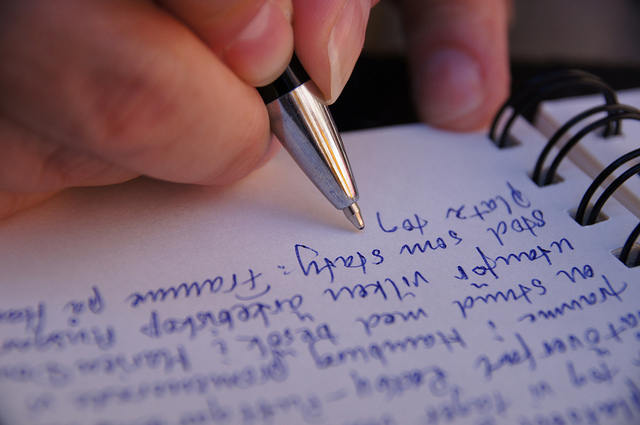Before, my secret way to write was to procrastinate forever then to work in frantic, uneven bursts; I insisted that I needed big chunks of time and a clean desk in order to write. I thought it was the only way to be inspired, and to find flow. But since my surgeries, I have a fraction of the energy I used to have. If I was going to write a book and start a business, I needed to find a new way. How do I get anything done if I have to lie down all the time? Aim for progress, not perfection.
For example, I just handed in my memoir to the publisher; it’s about 70,000 words. I wrote the book 30 minutes at a time, with multiple naps in between. A friend was curious about my system. She asked me to share what I do, reminding me that, “None of us have the energy we used to have!” So maybe my “progress over perfect” strategy is helpful to you, too.
My new secret way to amplifying focus and minimizing procrastination is not so secret. It is fundamentally the same as the fantastic Pomodoro Technique, with a twist. It waves goodbye to multi-tasking and goal-setting. And says hello to rest and moving forward. When I was in the hospital, the key to my mental and physical health was to focus on small victories. It’s important to shift our gaze from the overwhelming size of any project and toward progress.
It starts with the night before. I decide what tiny piece of writing (or task) I want to work on the next day. When I put my computer to sleep, I make sure that the page I open to in the morning is not my email inbox, and not a blank document (too much pressure!) but a document with some of my scribbles already on it. My friend Teresa, who is a single mom, a scientist, and a PhD candidate, starts each morning by filling in the lines and points on a single graph. She is going to finish her dissertation this year, one graph at a time.
When I wake up, I light a candle for luck and light, and I set my watch timer to 30 minutes before I do anything else. Yes, I still have a watch, and No, I don’t recommend that you use your phone. I need to keep my phone in another room, on airplane mode, because it is too distracting.
I like the Pomodoro idea of using a kitchen timer, but is anyone else sensitive to the loud ticking? It made me feel like there was a bomb on my desk and inside my head. I tried muffling the timer with a pillow, but that is just weird. Then I realized that any cheap digital timer will do. I love this Miracle TimeCube timer because it doesn’t tick and it’s so simple.
Next, I write for 30 minutes without judgment. Why 30 minutes? Because it is an amount of time that 1) I can usually carve out without interruption 2) It’s not so short that I don’t get into a flow, and it’s not so long that my mind finds reasons why I can’t do it 3) It’s not finicky or gimmicky; it’s easy for me to remember.
By the way, this is how I used to race ultramarathons: 30 minutes at a time. It was too intimidating to think about the whole race and how many hours I would be on my feet. So I broke it down into 30-minute chunks. Run for 30 minutes, eat and drink something, then run for another 30. You can run for a whole day like this, or longer. It reminds me of what E.L Doctorow once said (and Anne Lamott quoted) about writing a novel, “(It’s) like driving a car at night. You can only see as far as your headlights, but you can make the whole trip that way.”
To start fresh each morning, I usually move all those words I had on the page from yesterday down below the screen. I need to know that they are there, but I don’t want to get sucked into editing them, because then I don’t move forward. And that’s the key. Make progress. Once you make it about “finishing a chapter,” you’re focused on an outcome and a product, which can send your creative mind into fight, freeze, or flight mode. Focus on time, not task.
After 30 minutes, I clap at least three times to give myself a mini round of applause, and take a 5-min break. I stand up, refresh my coffee, and stare out the window.
I do this 30-minute routine three times, then take a nap. If you can’t nap because you are a teacher or a doctor or a mechanic, do something to rest and recover. In an office, I used to leave and walk around the block. And, on those days when a child is home sick, the furnace is broken, the car needs snow tires, and bills need to be paid, I still write. I do a single 30-minute interval of scribbling without judging, then I give myself a standing ovation.
To review:
- Set yourself up for success the night before
- Write/work for 30 min
- Stop & applaud yourself
- Rest: take a 5 min break
- Do three more intervals on the same or different tasks (30 min + 5 min rest x 3)
- Rest: take a longer break (I like the rhythm of also taking a 30-min break)
- Repeat
One important note: to begin or wrap up a creative project, I still need long swaths of uninterrupted time. There is nothing more valuable than a long weekend totally alone, devoted to writing. But in the messy middle of a difficult task or a creative endeavor, just make progress, 30 minutes at a time, without multitasking.
Oh, and don’t skimp on the applause! When you are tackling something big, you better do it by loving yourself along the way, or why do it at all?
Love,
Susie
****

